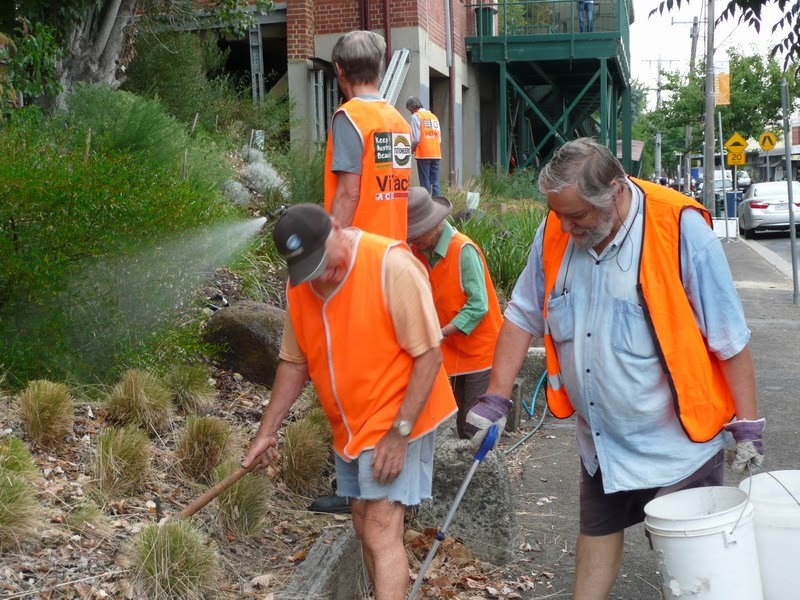 | |||
| Sticky Everlasting |
I would like to thank everyone who participated in any of the working bees or supported the Stationeers in 2014 a Safe and Relaxing Christmas and a Peaceful New Year. We will be back in action again in 2015 as the work of the Stationeers is ongoing. I plan to schedule a working bee in January because we have to tackle the poplar suckers that just keep coming back. Allan Bruno, winner of the Moonee Valley Councils' 2014 award for Public Service, recently donated his $250 award money to the Newmarket Stationeers. It is very humbling that Allan has chosen our group to receive the the donation because he has done so much for the Flemington Community via the Learn To Drive Program and setting up the Rotary Op Shop so Thank you Allan. If you would like to become a Newmarket Stationeer let me know via this blog or contact the Flemington Association website. Ros



























.JPG)









.JPG)










